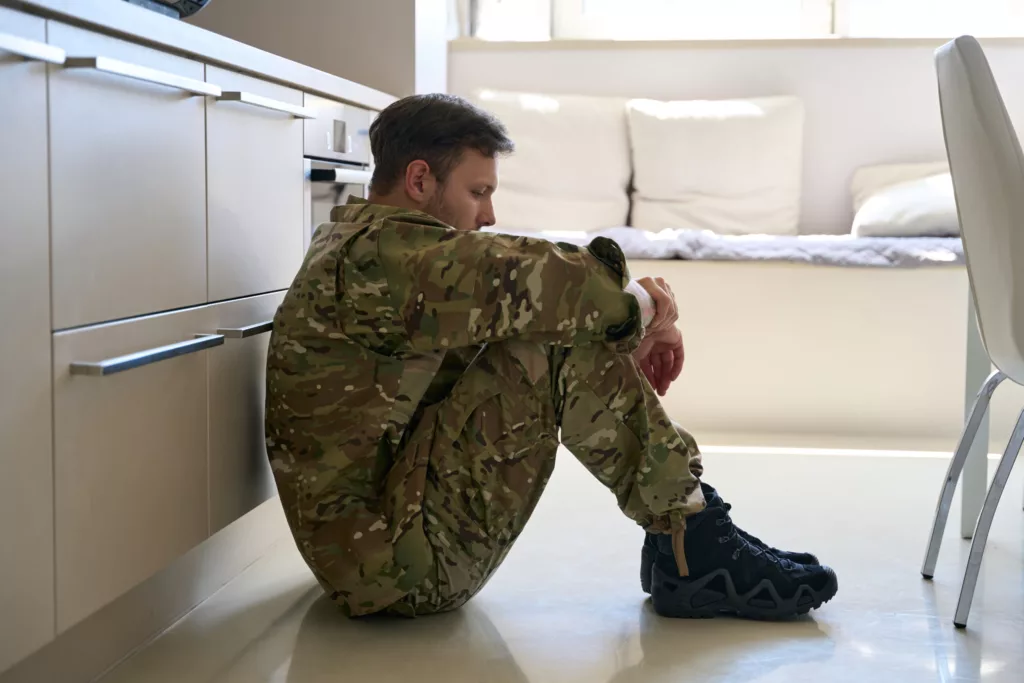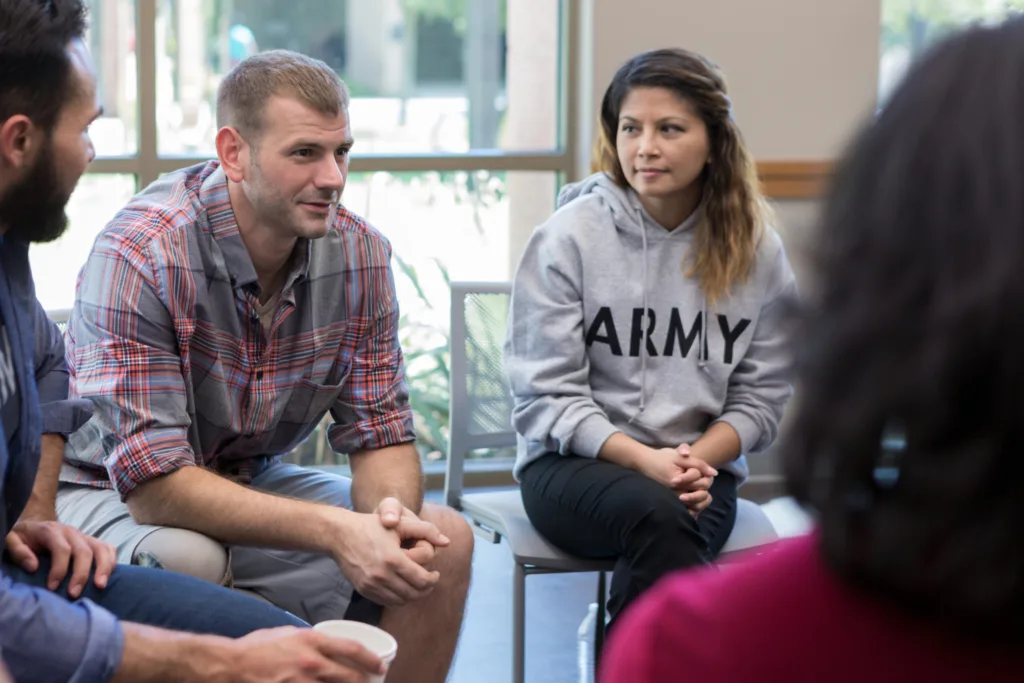Veteran Trauma, PTSD and Moral Injury
Our expert team at Pyramid Military Therapy & Recovery Programs specializes in the treatment of post-traumatic stress disorder (PTSD) in adult veterans of all genders.
At our Dallas, PA facility, clients recover from substance use and mental health disorders among fellow veterans with similar life experiences. In this small, family-like residential environment, veterans receive psychoeducation and participate in individual and group therapy to address underlying trauma and moral injury at their cores.
Traumatic events during military service that can lead to the development of PTSD in veterans include combat, life-threatening missions and military sexual trauma (MST). Symptoms of PTSD such as isolation, negative emotions, hypervigilance and substance abuse can have lasting negative effects on a veteran’s daily life and relationships, months or even years after the trauma occurred. However, with evidence-based professional support, recovery is possible.
Moral Injury
Moral injury occurs when an event or situation during military service violates a veteran’s moral values, resulting in emotional, psychological, social and/or spiritual distress.
For example, veterans and military servicemembers might develop moral injury after the following experiences:
- Witnessing, but not intervening in or reporting, a violation of moral values
- The killing of civilians or enemy combatants during war
- Betrayal by trusted leaders or fellow servicemembers
- Violating rules of engagement
- Failing to perform a duty during combat
Although moral injury can stem from traumatic events, it doesn’t always involve life-threatening injuries, accidents or violence. Instead, morally injurious events threaten an individual’s deeply held moral values and beliefs.
Trauma and PTSD
After going through or witnessing a life-threatening event, it’s normal to feel on edge, experience troubling memories of the event or have difficulties sleeping. If these symptoms of stress persist for more than a month, cause you significant distress or interfere with your personal or professional life, you may have post-traumatic stress disorder (PTSD).
Examples of traumatic experiences veterans might have while in the military include exposure war zone deployment and training accidents as well as exposure to combat, disaster and mass violence. Additionally, non-combat related trauma veterans might experience include military sexual trauma (MST), domestic violence, abuse, exposure to suicide, sudden death of a loved one, kidnapping or imprisonment, transportation accidents and more.
Approximately seven out of every 100 veterans, or 7% of veterans, will have PTSD at some point during their lifetime. Rates of PTSD vary depending on whether a veteran has deployed, military occupation or specialty, other mental health conditions, politics around the war, location of where the war is fought and type of enemy fought. PTSD diagnosis is more common among women veterans.
According to data from the U.S. Department of Veterans Affairs (VA), veterans who use VA healthcare are more likely to be diagnosed with PTSD, and therefore receive treatment, than those who use community health services, likely because the VA screens every veteran for both PTSD and MST. One reason more female veterans are diagnosed with PTSD is that women in the military report MST more frequently than men.
The four types of PTSD symptoms include:
- Reliving or re-experiencing the traumatic event
- Avoiding things that remind you of the trauma
- Experiencing negative thoughts or emotions
- Hypervigilance, or feeling “on-edge”
Not all veterans who have experienced traumatic events will go on to develop PTSD. Learn more about the difference between trauma and PTSD here.
Veteran Trauma Treatment
Pyramid Military Therapy & Recovery’s veteran-specific inpatient PTSD treatment programming is structured, yet flexible to accommodate the unique needs of each individual. While in our care, veterans have access to the following:
- Psychiatric evaluation and medication management
- Daily individual therapy sessions
- Psychotherapeutic process group, daily psychoeducational group
- Holistic therapies such as mindfulness/meditation
- Peer support services and recovery coaching
- Weekly family support group and monthly family workshop
- Alumni and aftercare support
Based in polyvagal theory, our treatment curriculum utilizes cognitive behavioral therapy (CBT), acceptance and commitment therapy (ACT) and dialectical behavior therapy (DBT) to help veterans heal from trauma and achieve a better quality of life.




